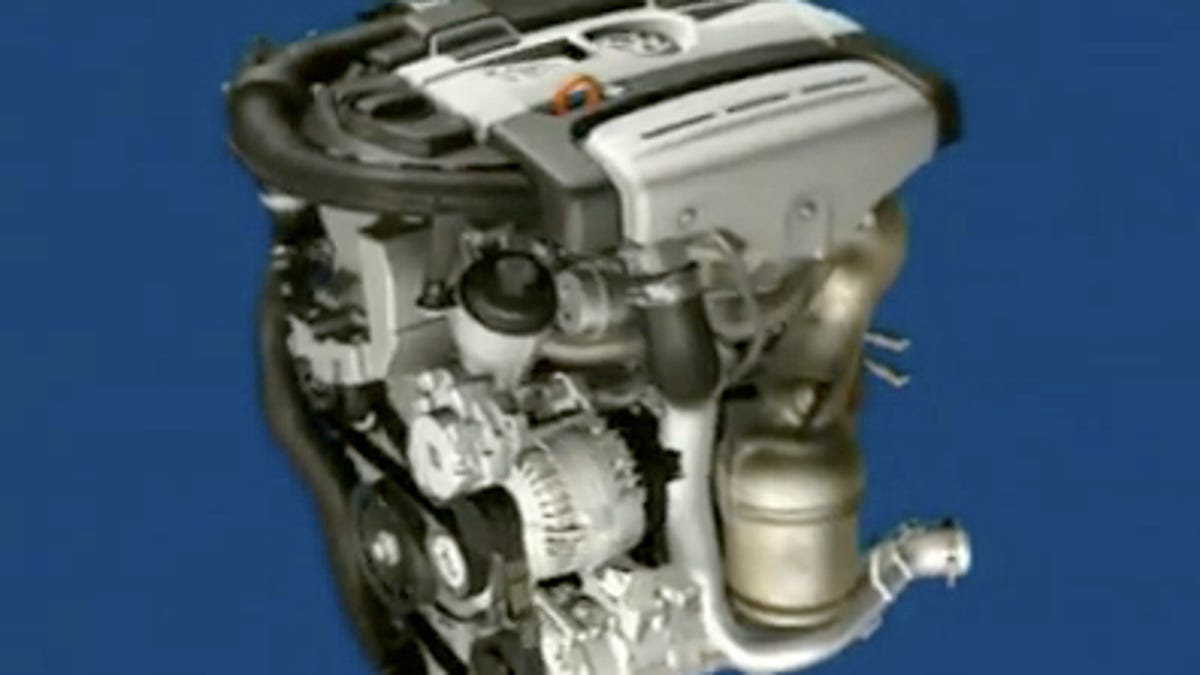VW 1.4L engine wins another award, still not available in U.S.
Proving size doesn't matter, VW won overall "Best Engine of the Year" for its 1.4-liter TSI Twincharger engine. Again. So why isn't it available in the U.S.?

Proving size doesn't matter, VW won overall "Best Engine of the Year" for its 1.4-liter TSI Twincharger engine. Again.
It's the second year in a row that the "little engine that could" won this award at the International Engine of the Year Awards 2010. This fun-size engine combines a turbocharger and supercharger in one compact unit and, using direct fuel injection, manages to squeeze out 178 hp with astonishingly little displacement.
Powering the European Union versions of the Eos, Golf, and Tiguan, the 1.4-liter engine delivers impressive fuel economy gains over its stateside 2.0-liter counterpart. In the U.S., a VW Golf equipped with a 2.5-liter 170-hp engine gets 22/30 mpg, whereas a Golf with the 1.4-liter TSI Twincharger boasts 45.5 mpg.
Given its miserly gas mileage coupled with recent petrol-related environmental disasters, you wouldn't be alone in wondering why this engine isn't available on our side of the pond to help slake our seemingly insatiable thirst for oil. But are American drivers still too size-conscious to trade down?
Granted, our gas prices are low compared to two years ago, even in the wake of BP's oil slick gushing at a rate of 35,000 to 60,000 barrels per day. The EU, on the other hand, has had no reprieve from high gas prices. And further motivating European manufacturers, EU vehicles are taxed by engine size, which lends even greater urgency to shrink the size of the engine while maintaining horsepower.
But in the U.S., Corporate Average Fuel Economy (CAFE) standards can be achieved through a variety of ways, and VW is using a combination of hybrids and clean-diesel technology to help it meet fuel economy regulations, making the 1.4-liter engine unnecessary.
It's also a numbers game.
The diminutive VW engine achieves its horsepower with the help of a supercharger and a turbocharger; more parts make a more expensive vehicle. VW already faces tough competition in the crowded compact-car segment with the debut of the 1.4-liter GM Cruze and the 1.6-liter Ford Fiesta. And buyers haven't historically been willing to shell out bigger bucks for smaller cars.
But with the perfect storm of an economic crisis coupled with an environmental crisis, is the U.S. car buying market ready to jump on the small-engine bandwagon?

